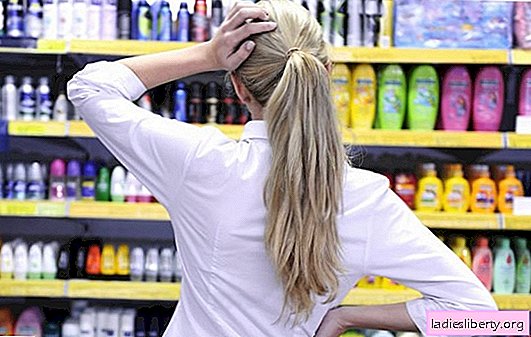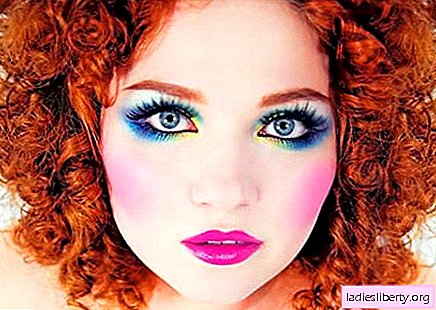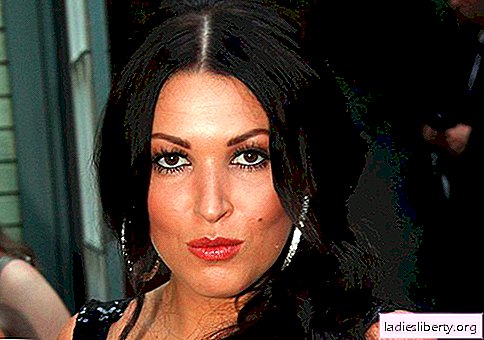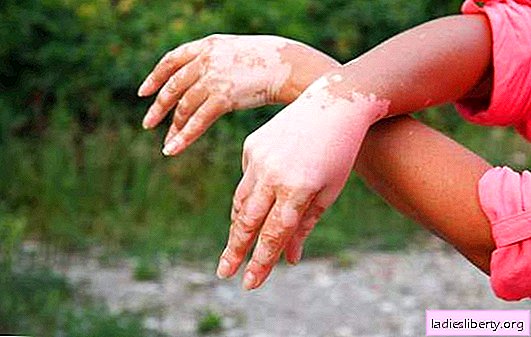
You may have noticed that on some cosmetic products in pharmacies and beauty and health stores there are labels "no parabens." Parabens are the most commonly used preservatives in personal care products and cosmetics. They have antiseptic and fungicidal properties, that is, they stop the growth of mushrooms, bacteria in your creams, deodorants, toothpastes, makeup products, etc., especially in a humid, warm bathroom environment.
Parabens have many names: methylparaben (E218), ethylparaben (E214), propylparaben (E216), heptylparaben (E209), butylparaben and others. You can find these and other indices in thousands of personal care products, such as shampoos, mascara, body lotions, etc. These substances allow skin care products to withstand months or even years on shelves and in first-aid kits. But over the past few years, a discussion has begun between scientists and services involved in the regulation of cosmetic products about whether the substances used for nearly 75 years can harm our health.
Parabens, controversy and cancer
Some researchers believe that there may be cause for concern. According to studies by a scientist named Philippe Darbre, the results of which she published in 2004, parabens were found in 18 of 20 tissue samples from a breast tumor biopsy. Her research did not prove that parabens cause cancer, but they were found in malignant cells. Darbray claims that the same cancer cells react to parabens and estrogen, therefore, parabens can provoke the growth of a malignant tumor. The study was heavily criticized for not comparing the levels of paraben in normal tissue, but nonetheless, the results prompted new studies. In 2015, studies showed that parabens can be more harmful than previously thought, in combination with some other molecules and compounds.
However, the Scientific Committee on Consumer Safety published an official statement on the safety of parabens. In it, the committee confirms that there is no evidence of the risk of breast cancer caused by the use of deodorants, including those that contain parabens.
It should be noted that in general, more than 90% of antiperspirants and deodorants do not require preservatives and parabens due to their composition and method of packaging.
Risk assessment
The guiding principle of toxicology is what dose makes the substance poison. One application of this principle is that skin care products such as lotions give you a higher dose of parabens than rinses like shampoos. Another is that the lower the concentration of parabens in any product, the lower the risk.
Currently, the amount of parabens in any product is usually small. The WHO believes that these chemicals are safe at low dosages.
Early puberty
The ability of parabens to mimic other hormones makes them endocrine disruptors, substances that adversely affect the endocrine system. The endocrine system releases hormones into the bloodstream and is involved in a number of functions related to reproduction, waste disposal, digestion and metabolism. Any change or impairment of body function can alter the growth, development and, for example, brain function.
Parabens specifically mimic estrogen and thus can lead to early puberty in girls and adolescent boys. Over the past few decades, endocrinologists have observed a decreasing average age of puberty, and have seen that girls aged eight years old show breast growth and pubic hair growth. Endocrine disruptors can also lead to testicular enlargement and breast development in young boys.
Also, a recent Danish study has raised concern among the masses. It showed that parabens can be found in the blood and urine of healthy young male volunteers several hours after paraben-containing lotions were applied to their skin. The authors concluded that since chemicals can be absorbed, metabolized, and excreted from the body, they "potentially can contribute to adverse health effects."
Sperm reduction
Parabens can adversely affect the male reproductive system. In a study conducted by the Tokyo Metropolitan Public Health Research Laboratory, researchers injected parabens into three-week-old rats. Four weeks later, researchers examined rats and found that their sperm production was significantly reduced compared to the amount of parabens they received. Rats that received the maximum dose of parabens, which corresponded to the daily acceptable consumption of parabens in Europe and Japan, showed a significant decrease in sperm concentration.
Enjoy Your Bath
Ironically, parabens are natural chemicals. Many green skin care brands claim that ingredients like parabens are dangerous when in fact parabens are naturally produced by vegetables and fruits. Products such as soybeans, beans, flax, cherries, blueberries, carrots and cucumbers produce parabens and other chemicals that mimic estrogen to a much greater extent than the small amounts of parabens used in skin, hair and makeup treatments.
Despite this fact, when was the last time you read about the risk of breast cancer from cucumbers, beans or berries? The truth is that, on a global scale, there is an exhaustive degree of scientific and medical research demonstrating the safety of parabens used in skin care and cosmetics. So the next time you read a story that suspiciously indicates parabens are unsafe, think twice before believing in the hype and remember the facts - the tiny levels used in your personal care products are not harmful.
Alternative
And yet, is there an alternative to parabens? Even paraben-free food manufacturers say it's hard to make products without these additives. Modern “green” brands use oregano, thyme, rosemary, yellow root, grapefruit seed extract, grape seed extract, green tea, eucalyptus or lavender oil in various combinations as preservatives, and they are constantly looking for other compounds and combinations with natural preservative properties.
The reason parabens are used so widely is because they are cheap and effective. They replaced formaldehyde many decades ago. Nobody wants to take a step back to this chemical. Everyone is looking for the best alternatives. Therefore, until consumers decide that they like to store cosmetic products in the refrigerator, most companies will continue to use parabens as preservatives.
Demand determines supply
In the next 10 years, parabens should gradually go after formaldehyde. This may happen not so much because of evidence against them, but because of falling consumer demand.
The conclusion is obvious: parabens are toxic not only for fungi and bacteria, but also, in large quantities, for humans. In many cases, they can be replaced by something equally dangerous or more dangerous. Therefore, do not focus on the front side of the packaging of the product you are buying. Read the composition and ingredients. And if you are very worried about parabens, then it will certainly be good if you try to do without them until some time has passed so that studies can be carried out on what might take their place.











